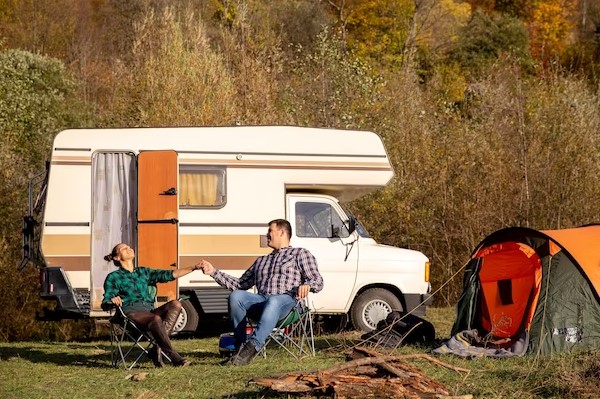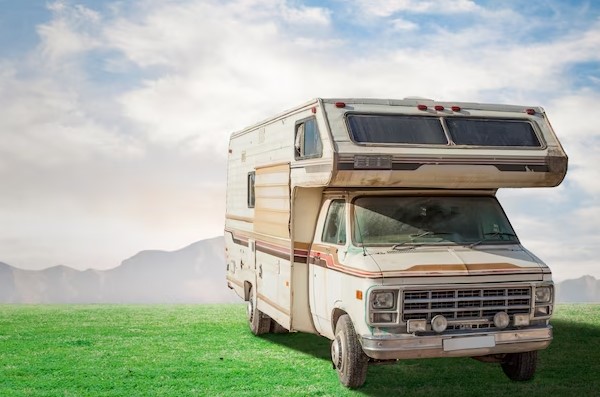There’s nothing quite like the liberty and thrill of journeying across the country in a recreational vehicle. The open road, the incredible vistas, and the priceless experiences make owning an RV a worthwhile investment.
Yet, as any experienced RV owner will admit, the joy and freedom of road trips come hand-in-hand with an essential set of maintenance and repair responsibilities. Knowing how to handle common RV repairs can save you precious time and money.
In this comprehensive guide, we’ll dive deep into RV repair. We’ll deliver ten essential tips every RV owner should keep in their back pocket. So, let’s buckle up and learn more!
1. Understand Your RV’s Electrical System
Every recreational vehicle has two electrical systems: the 12-volt DC and 120-volt AC systems. The 12-volt system powers the RV appliances when not connected to external power.
The 120-volt system works when you’re hooked up at a campground. Understanding these systems is crucial for any RV owner.
Always check your RV’s battery. Ensure it’s clean, charged, and filled with distilled water. If you encounter issues like your RV lights flickering or appliances not working, check the electrical system first.
2. Tires Maintenance is Paramount
An RV trip can turn disastrous with a tire blowout. Regular tire maintenance is critical to avoid such situations.
Check your tire pressure often, preferably before every journey. Use a tire pressure monitoring system to stay informed about driving pressure levels.
Also, look for signs of wear and tear on your tires. Replace any used RV tires that show signs of damage, such as cracks or blisters.
3. Check Your RV Roof
Roof damage can cause significant problems, including water leaks that damage the interior of your RV. Check your roof for signs of damage, and don’t delay the repair process. Simple cracks can be fixed using a sealant. More extensive damage may require a patch.
Remember, different types of RV roofs (rubber, fiberglass, aluminum) require various patching methods. So ensure you’re using the correct one for your roof type.
4. Keep the Water System Flowing
Your RV’s water system is more vital than people know. It provides the water you use for drinking, cooking, and showering. So, regular RV maintenance of the water system is a must.
Check your fresh water tank, pump, and lines for leaks or damage. If you encounter low water pressure, it may be due to a clogged filter or a faulty water pump.
5. Keep the Brakes in Check
While considering buying an RV, especially a used RV, always inspect the brakes. Checking and servicing your RV’s brake system can prevent accidents.
Listen for squeaks, squeals, and grinding sounds. These noises indicate a need for a brake inspection. A shaky steering wheel or a vehicle pulling to one side can also indicate a problem.
6. Regularly Service Your Air Conditioner
RV trips in hot weather can become unbearable without a properly functioning air conditioner. Cleaning and servicing your AC unit can help prevent any unwanted breakdowns.
Check your AC’s filter if you notice less cold air or reduced airflow. Clean it if dirty, or replace it as necessary.
7. Maintain Your RV’s Propane System
If you’re using Pro-line Trailers or any other brand of RV, maintaining your propane system is essential. Check for any leaks in the system. A smell of propane, a hissing sound, or a yellow flame instead of blue on your stove all indicate a leak.
If you notice any of these signs, turn off the gas supply. Then air out your RV. Next, have the system inspected by a professional.
8. Check the RV’s Suspension System
Like your brakes, the suspension system is vital to your RV’s safe operation. Check for worn-out bushings, loose bolts, or damaged springs.
Be sure to replace or repair them as necessary. Regular inspections can help prevent severe damage and costly repairs down the line.
9. Maintain Your RV’s Exterior
Keeping your RV’s exterior clean and well-maintained does more than maintain its appearance. Regular washing and waxing can help prevent oxidation, rusting, and fading.
Check for any cracks or damage to the exterior. And repair them to avoid water leakage.

Also, examine the seals and caulking around your windows, doors, and roof vents. These distinct areas can deteriorate over time and lead to leaks. By doing so, you’ll be extending the lifespan of your RV, preserving its resale value, and ensuring a more enjoyable and hassle-free travel experience.
10. Inspect and Clean the Engine
Just like any vehicle, the engine is the heart of your RV. Regular oil changes, filter replacements, and belt inspections are vital to keeping your RV running smoothly. Pay attention to any unusual noises or changes in performance.
In addition to these routine checks, cleaning your engine can help identify potential problems, such as leaks or corrosion, that might go unnoticed. A well-maintained motor does the following:
- Enhances fuel efficiency
- Reduces emissions
- Promotes long-term reliability for your adventures on the road
Master RV Repair and Enjoy the Open Road with Confidence!
Don’t let a minor issue become a major headache. You are equipped with these RV repair tips and the knowledge to keep your recreational vehicle in tip-top shape.
Regular RV maintenance can save you from costly repairs and unnecessary hassle. These tips can also give you peace of mind to enjoy your journey.
Thank you for taking the time to read this post. We appreciate your interest in becoming a more informed and self-sufficient RV owner. Check out our other blog posts for great tips and advice.




